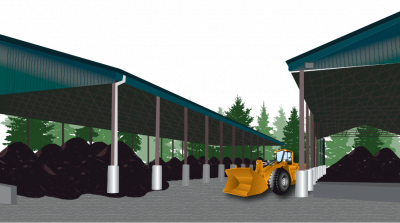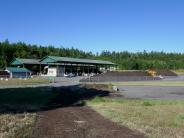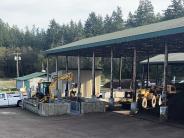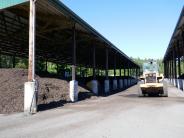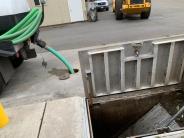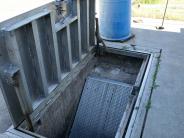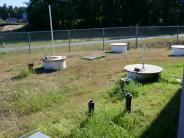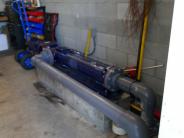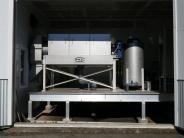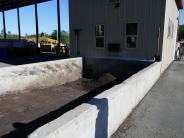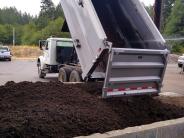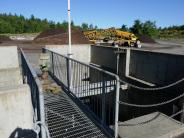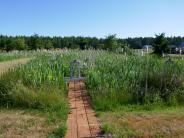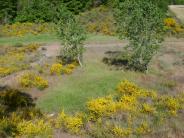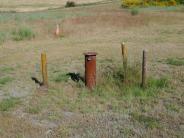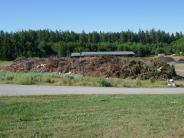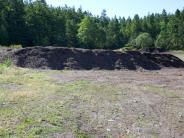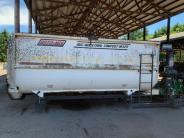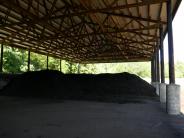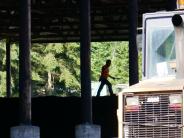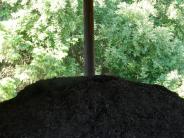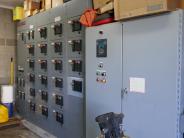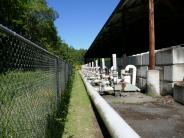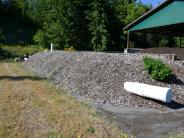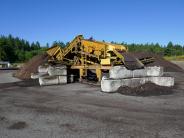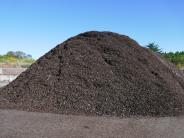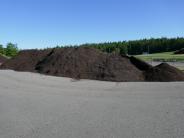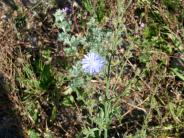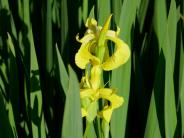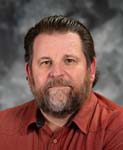Compost Facility
compost IS AVAILABLE
Watch our video on the Sewer System, including information about investments in our Compost System.
The City’s compost facility was one of the first in the state to compost bio-solids and has been up and running at the same location since 1994.
At the City of Port Townsend’s Composting Facility, we use an aerated static process to transform three waste streams (we call them resources) to make a “Class A” compost that is available for all of your gardening and soil amending needs. Our goal is to make the best compost we can and to return those much-needed nutrients to the soil so it can be used by the plants that help to make our community beautiful.
The City of Port Townsend's Compost is a combination of bio-solids from the City's Wastewater Treatment Plant, Bio-solids from septic systems from Jefferson County, and ground yard waste that is mixed together and aerobically composted. The mixing and processing of these materials provide a dark-rich soil that is commonly used as a soil conditioner which is safe for lawns and all gardens including vegetable gardens. Compost makes healthier soils by improving the holding capacity of sandy soils, compost can lessen water use and improve plant vigor. Mixed into clay soils, it can improve soil texture. Compost also encourages soil microorganisms, whose activities help make nutrients available to plants.
The Compost Facility is located on the Jefferson County Transfer Station Property at 603 County Landfill Road, below the transfer station and is open for compost sales Tuesdays, Wednesdays, & Fridays, from 12:00 p.m. - 3:00 p.m. The price is $12 a cubic yard for nine or fewer cubic yards, or $9.00 for ten cubic yards or greater. If you have any questions regarding compost you can call the compost facility at (360) 385-7908.
Please bring exact change or a check to purchase compost.
Yard debris can be dropped off at the compost station, please read below to see what is acceptable and not acceptable in our yard debris pile. Please make sure not to leave behind any gardening tools and equipment or trash.
Yard debris can be dropped off at the compost station.
Acceptable forms of yard debris are:
- Christmas Trees
- Grass clippings
- Leaves and Shrubs
- Tree branches less than 8’ long and less than 10” in diameter
- Tree trimmings
- Weeds
We cannot accept: 
- Demolition lumber
- Dirt
- Food scraps/waste
- Plastic bags
- Rocks and gravel
- Sod
- Stumps
I have removed noxious weeds, what do I do with the plant material?
The safest way to get rid of plant material is to bag it and bring it to the solid waste facility as trash, not compost.
Report an Issue
If you have a compost issue you’d like to report, please visit our Report a Concern page and fill out the concern form.
The below photos show the process for composting bio-solids:
(hover over photo for a description)

